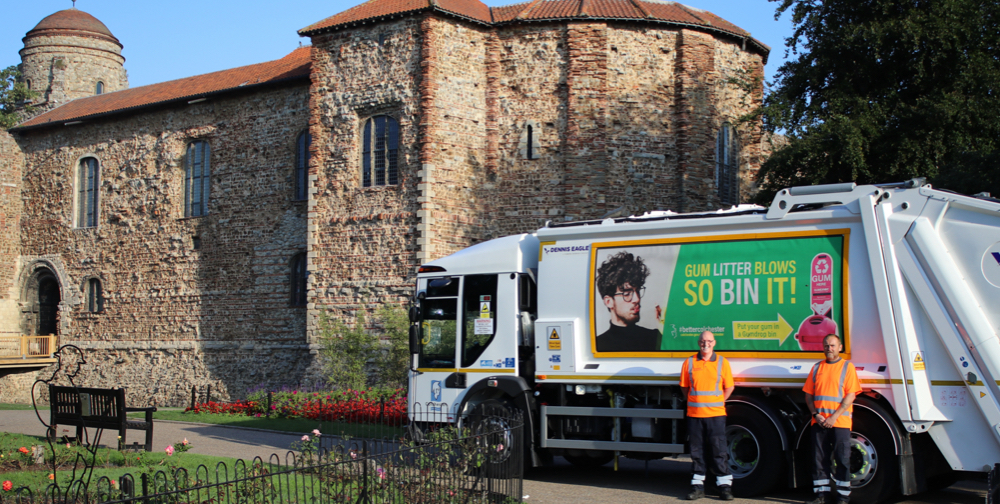

Colchester Borough Council provides recycling and rubbish collections for 85,000 properties. Collections are complicated with properties being on a number of different routes, resulting in complex collections for different households on different days and different weeks.
My role(s): Designer and Project Lead
Project length: 6 months
As a self initiated project, I was leading a team to improve usability, accessibility, and customer experience across colchester.gov.uk. Our team identified the recycling calendar as being one of the top drivers of traffic to the website, making it a priority for us to improve.
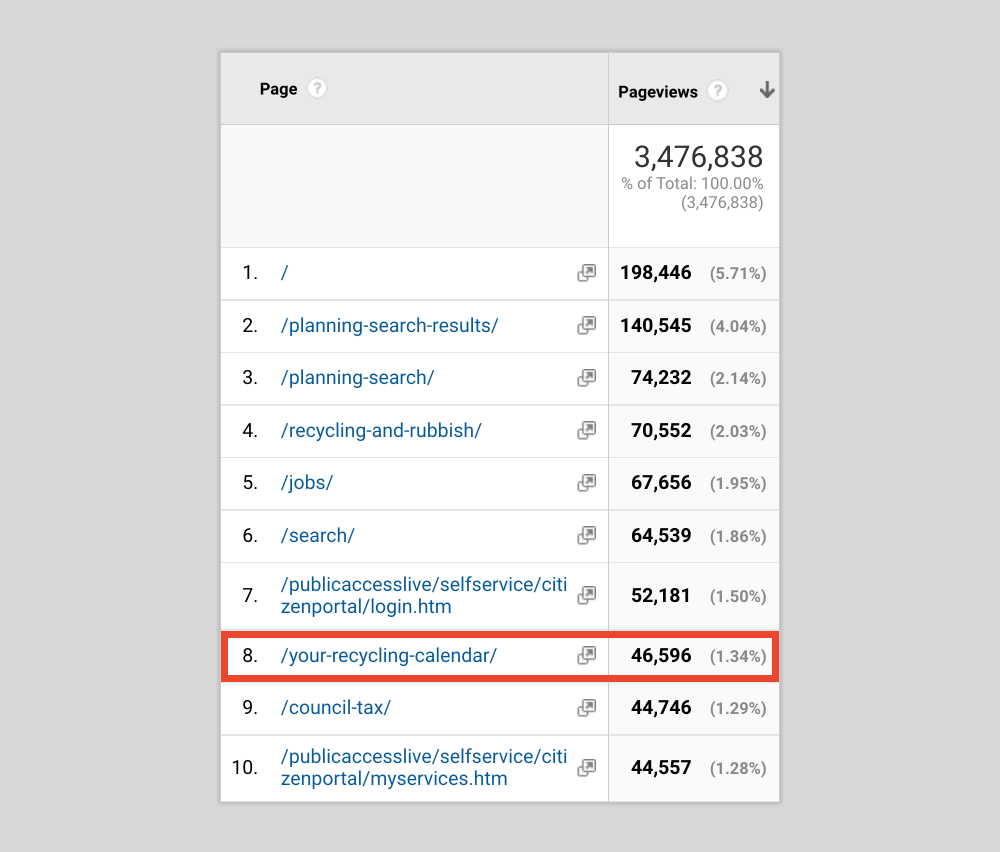
For the past 5+ years, Colchester residents have received their recycling calendars through the post or as a downloadable PDF via colchester.gov.uk.
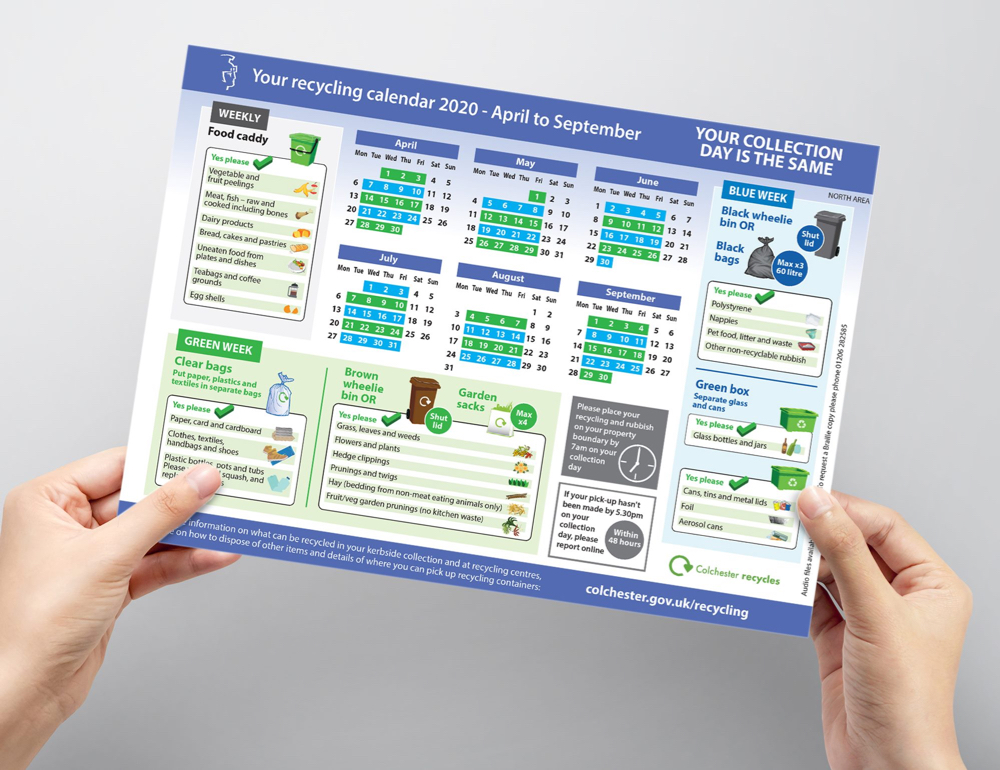
We used a combination of quantatative and qualatative data sources to help us make decisions during the project, including:
By analysing the gathered data and research to inform ideation, storyboards, and initial designs were developed to create a prototype of a digital recycling calendar.
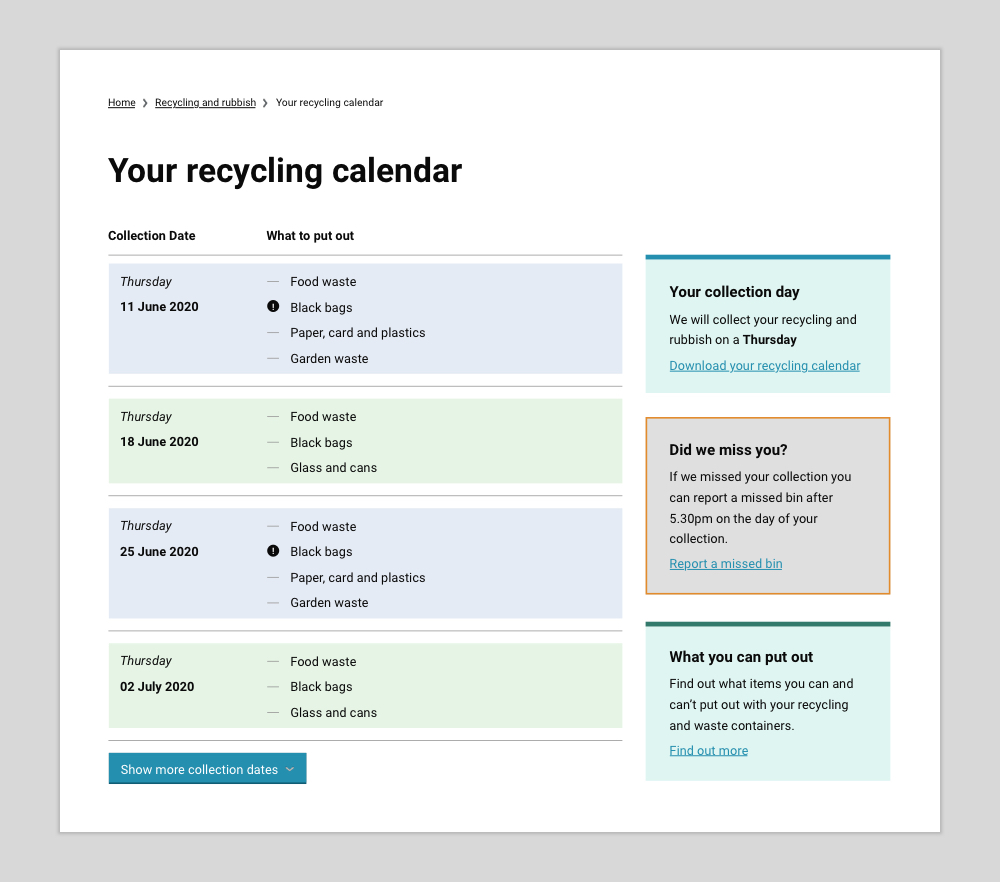
Internally within the project team, and with service representatives, we discussed and critiqued the work. An early decision was made that the only way the calendar could work for all residents was if the calendar was informed by the route and address data.
As we weren't sure if we had the inhouse capabilities to deliver complex and bespoke development, a minimal working prototype was developed to test ours, and the route and address data capabilities. This ensured that minimal time was spent before taking the project further.
I worked with the developer and data specialist to lead an integration with the services route data supplier at a one-off-cost of £1,100. This integration reduced the need for any future manual uploading of the route and address database, and reflected any changes to routes or addresses within a 2 hour timeframe - resulting in accurate calendars for all residents at all times.
Once the integration was completed, work on the hi-fidelity prototype began. The UI for the calendar was developed using a design system that we were using to redevelop the entire colchester.gov.uk website. This created consistency, and ensured any future UI improvements could easily and speedily be rolled out across the entire website.
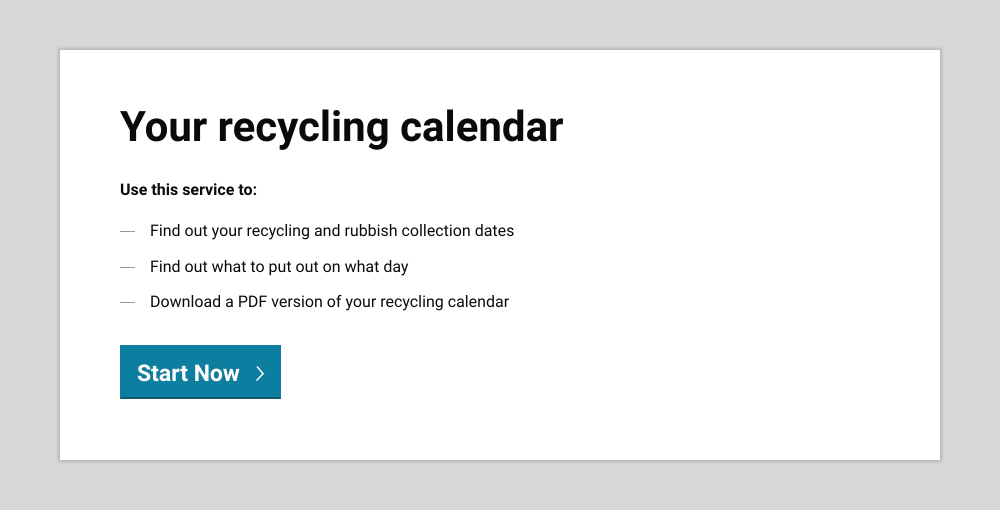
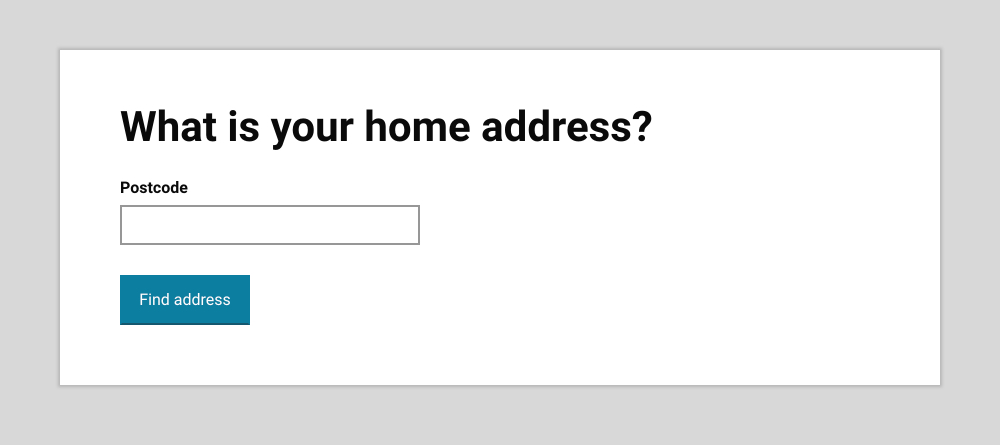
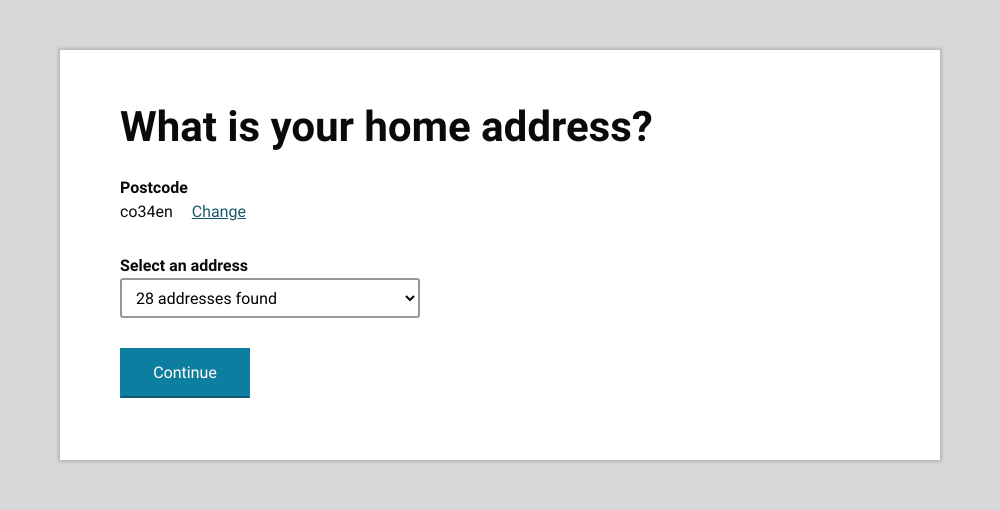
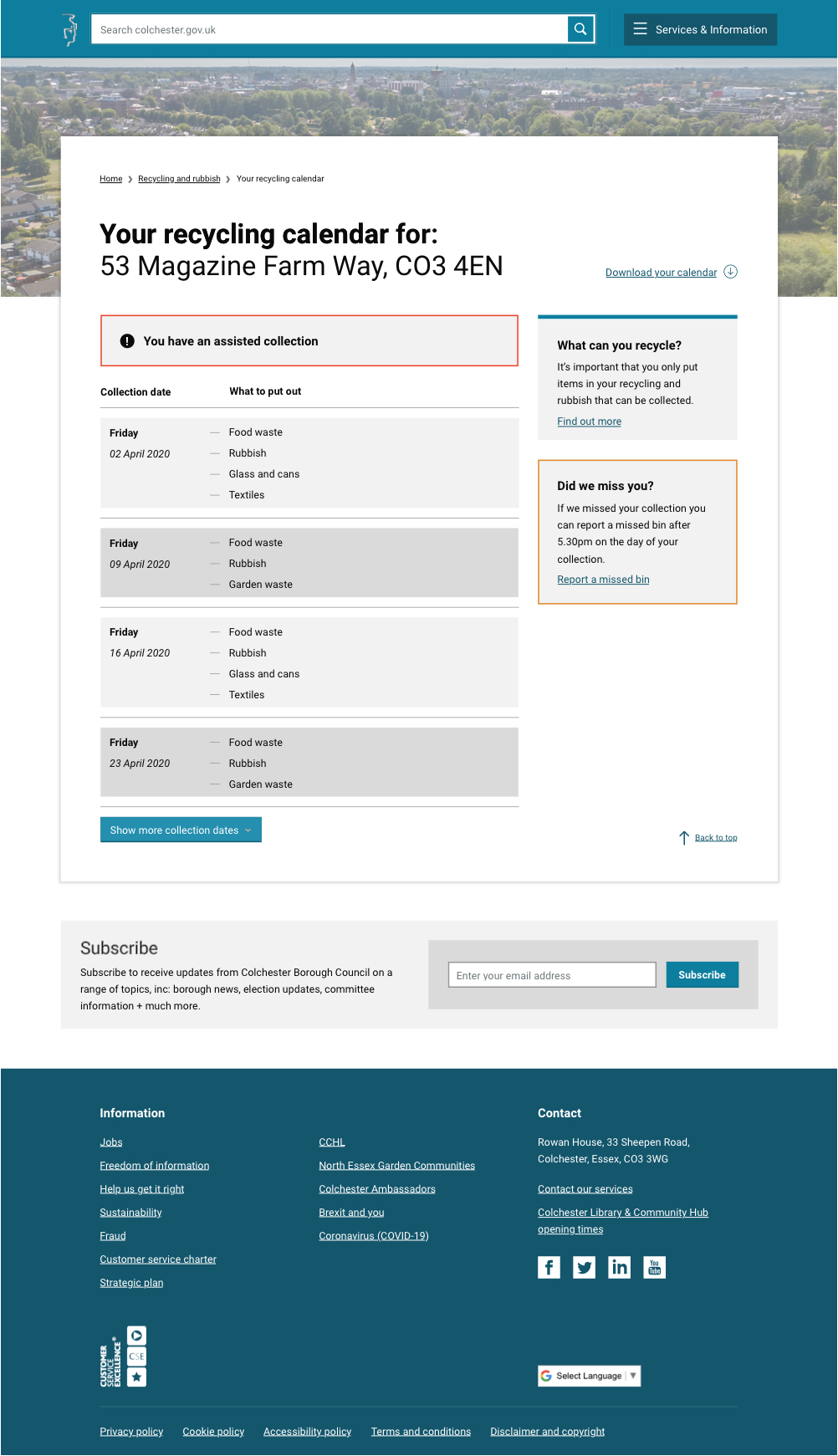
An early decision was made to create a digital calendar that would provide all residents with accurate and up-to-date calendars, meet accessibility and usability needs, and reduce cost for the organisation.
However, we were aware that to create a completely inclusive calendar, we needed to cater for all. Some residents in Colchester do not have access to a computer and relied on printed calendars being posted out to them.
To address this, I worked with our developer and CSC team to translate the digital calendar into a PDF (still informed by the same up-to-date route and address data), which the CSC could download and use in combination with a database of approximately 3,000 customers known to require printed calendars.

Residents could also download an A4 sized PDF when viewing their digital calendar, as we were aware from customer feedback that it was common practice for residents to 'print and pin' their calendar to their fridge.
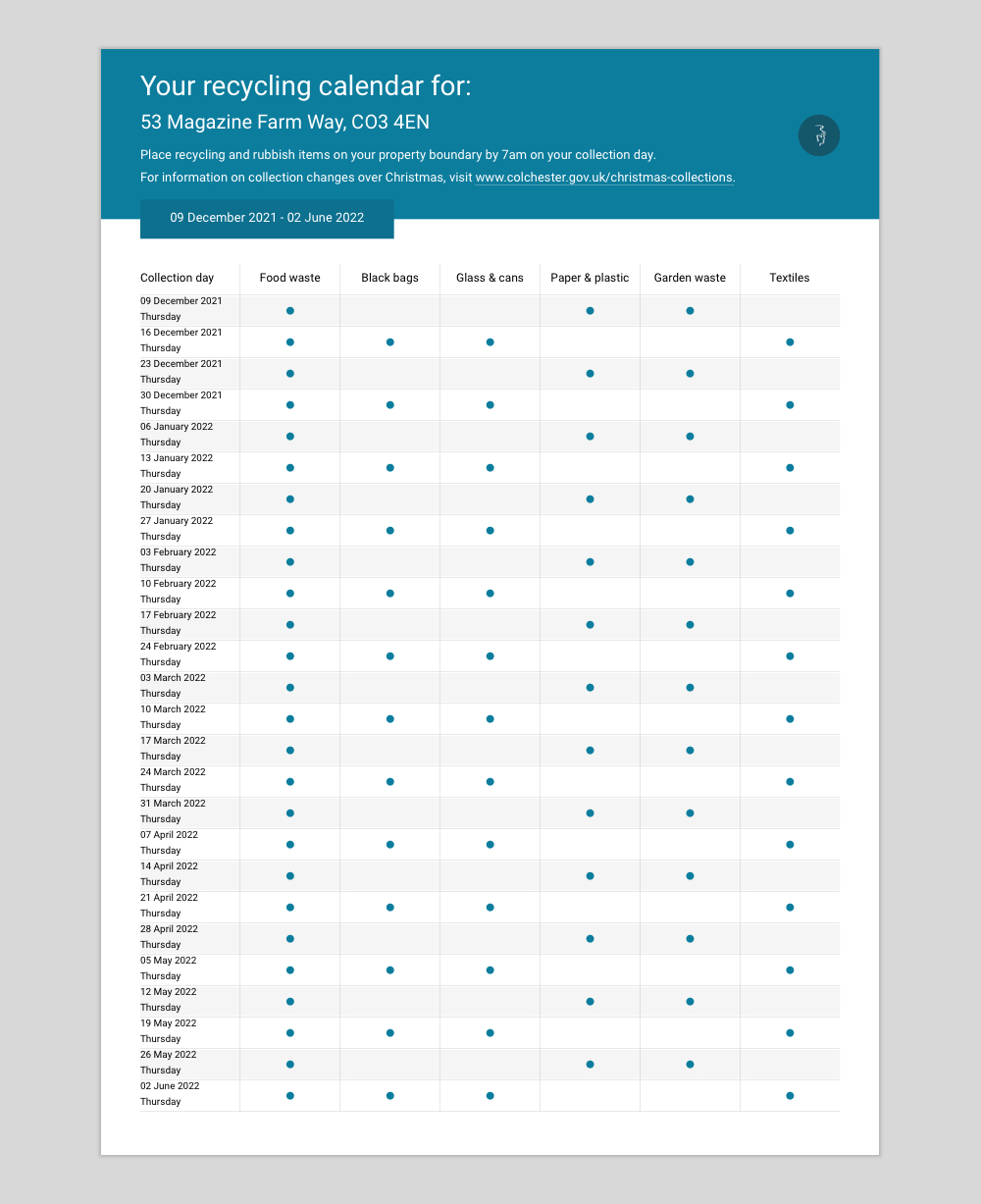
I was aware that this was a drastic and wholesale change to how Colchester Borough Council provided recycling calendars to more than 85,000 households.
Such a drastic change in behaviour was a concern for both the service and the project team so I decided that we would introduce a 'Beta banner' into the digital calendar process, enabling customers to provide feedback. We could then analyse and address any concerns provided by customers.

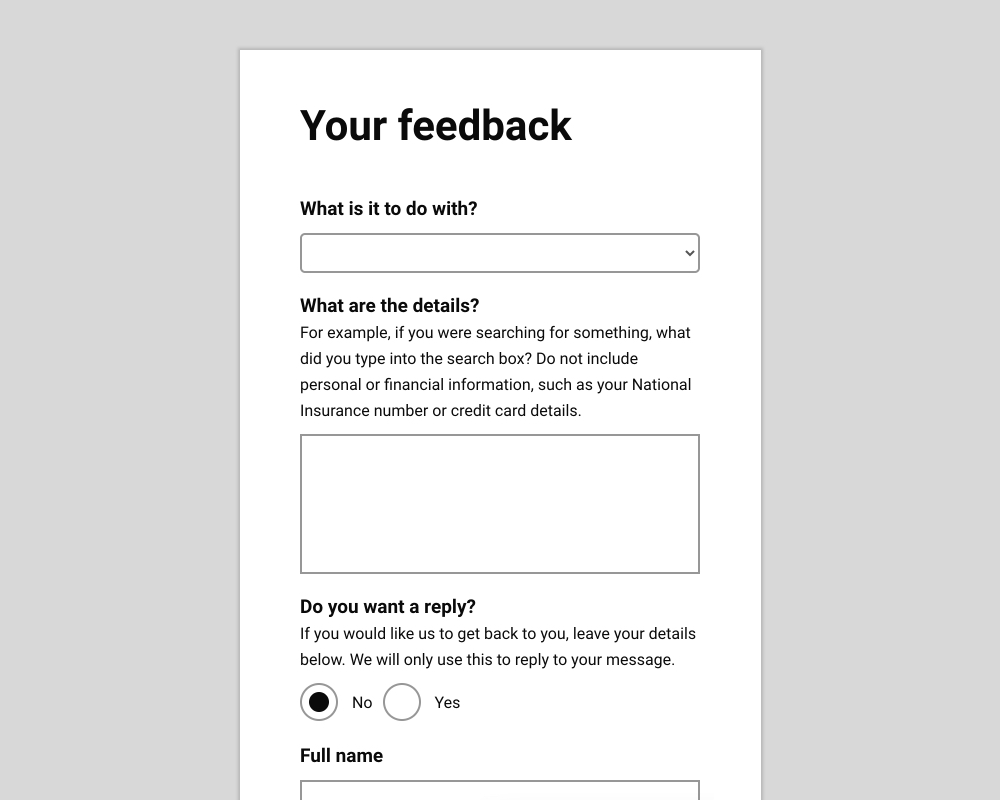
The biggest challenge we faced was that the waste and recycling service is a political hot potato in local authorities, and we wanted to keep politics (uppercase and lowercase) from negatively effecting the end result of a usable and accessible calendar targetted at meeting the needs of residents.
To address this, we delivered at pace which meant we were at a point of delivery before the politics could creep in. We also had in our back pocket the data to show that 20,000 households were not being serviced with the existing calendar, and with a ready-to-go digital calendar, we had a solution that served all residents.
Lastly, we were openly and vocally approaching this in an iterative manner with a clear mindset that this was a phase 1, and we would improve and change the calendar based on customer feedback gathered after delivery.
On reflection, I made a complex problem, simple. I saved the organisation £50,000 per year, and most importantly, I helped to deliver an inclusive service that works for every household in Colchester.
Creating consistency
Improving the customer experience of self-serve transactions at local government level.